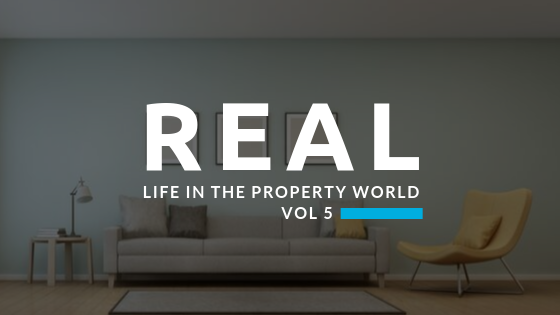|
Whether you love the thrill of an auction or your knees tremble at the thought, auctions have become the preferred method of selling property in most of the major centres across the country.
For those who are new to the process, buying or selling at auction can appear daunting. Don’t be put off! There are many advantages, and a few tips and tricks that you should know about before entering the auction room. Read on! The advantages of auctions for the seller As a seller, an auction offers you the opportunity to achieve the best price in the marketplace in the shortest possible time. Here are some of the many reasons why selling at auction has become so popular:
What to expect when you sell at auction Your sales consultant will guide you through the pre-auction and auction process which should include:
Remember, you’re in control as the seller. You set the reserve. If bidding does not meet the reserve, you can decide if you want to enter negotiations or not. Getting prepared to buy at auction A common perception is that auctions are good for sellers, not buyers, but this is not the case. As a buyer, you know exactly who your competition is and the negotiations are out in the open for everyone to see. If your bid is successful, the contract is signed then and there, and property is yours with no further negotiations. To make the auction process work for you, it’s important to arrive with your homework done. Here are some suggestions on how to prepare to buy at auction:
A buyer can submit a pre-auction offer to the property owner for their consideration. If they are willing to accept the offer, the auction date may be brought forward. It’s important to let the sales consultant know you are interested in the property so if another purchaser submits a pre-auction offer and the auction is moved forward, you’ll be contacted. The reserve is set at the offer figure and the auction starts with that as the opening bid. If no higher bids are received, the property is sold at the offered price, but if other buyers bid, the property will be sold to the highest bidder. Regardless of whether you’re a buyer or seller, the more research and preparation you do prior to auction, the more likely you are to put your best foot forward on auction day. Get in touch with me to talk it all over, I’d love to help you decide if an auction campaign is right for you. Going, going, Gone!!! I’m here to help. So if you’re thinking of selling your Whangarei home, I have a real passion for selling Real Estate, as well as marketing & coffee! I’d love to share my expertise! Any time - 021 606 460 or [email protected] Cheers, Paul
0 Comments
When you’re looking for a new home, one of the first things you need to consider is the order of events – do you sell your existing property before you buy, or after? Here are some factors to consider before taking the plunge. Buyer’s market or seller’s market? When buyers are plentiful, but properties aren’t, homes generally sell quickly. In a seller's market, there is less risk associated with buying first and then selling your existing home. However, sellers in this kind of market may be less likely to accept an offer that is conditional upon you selling your home, so you could end up owning two properties for a period of time. The average time it takes to sell a property varies from region to region and from month to month, so it’s important to talk to your sales consultant to get advice about current market conditions, recent comparable sales in your area and the possible demand for your property before making a decision to buy first. Keep in mind also that in a seller’s market there will be more competition, so you can expect to pay top dollar your new home. The good news is that you’ll have the peace of mind that comes from finding the right house to buy before selling yours. Do you know how much you can spend on your next property? Until you sell your property, you may not know exactly how much you’ll have to spend on your next one. In a buoyant market, you could easily have unrealistic expectations when it comes to the value of your own property. Your sales consultant can help you get a realistic picture of your property value by preparing a comparative market analysis of what similar properties have sold for in your area in recent times. Are you a cash buyer? If you choose to sell first, you will instantly become a cash buyer and be in a much stronger position to buy as soon as you find what you want. Do your homework on the market and area that you are looking to buy in so you’re ready to buy when the right property comes up. Have you found your dream home? Buying a new home is an emotional decision. If you want to follow your heart and buy that dream home before selling your current home, make sure you’re well informed. A good sales consultant will provide quality advice for your unique situation. If you are looking for a very specific type of property and it becomes available, it could be a good move to snap it up even if you haven’t sold your home, but there’s no downside in getting expert advice before you do. Are property prices are going up? If you’re in a rising market, it could make sense to buy your new home first and negotiate a longer settlement. Your current property could potentially rise in value during the settlement period, allowing you to earn more when you sell it. Are property prices falling? Falling property prices can work in your favour as well if you can attract an interested buyer before prices drop further, leaving you free to purchase your new property at the lower end of the market cycle. However, falling property prices are also an indication of a slower market so it could take you longer to sell your existing property. At the end of the day, your best course of action is to work with a real estate professional who can provide you with the local knowledge and insights you need to make an informed decision for your specific circumstances. Get in touch with us to talk it all over, we’d love to help you out. Cheers, Paul, Shontelle, Susie. x
Here are some tips for trimming the cost of your mortgage. As a property owner, paying off your mortgage before you retire is important. Once you hit retirement age, the last thing you want is to still be saddled with debt. Here are some ways to help reduce your total mortgage and essentially help you pay less for your property.
Shorten your term Reducing your mortgage term to 25, 20 or even 15 years shaves thousands of dollars in interest off the total. Even reducing it by one year can save you money. For example, if you borrow $500,000 at 4.00% interest over 30 years, your interest on a principal and interest loan amounts to $359,348*. Shorten your mortgage term to 25 years and you reduce your total interest to $291,755*. Of course, this means your regular repayments will increase, so make sure your budget can accommodate this or you’ll need to alter your spending habits. Make additional payments If you can’t afford to shorten your mortgage term, keeping a portion of your mortgage on a variable rate or having a revolving credit mortgage, which works much like an overdraft, may be the answer. Look out for refinancing deals Look for refinancing offers with more flexibility or a better interest rate. Be sure to factor in any costs for refinancing when considering this option. It’s worthwhile reviewing your mortgage on an annual basis to ensure you’re getting the best deal. Your mortgage specialist can do a financial health check and help you find savings. If interest rates drop, keep repayments at your current level, rather than be tempted to spend the savings. By doing this, you’ll shave off a substantial portion of your loan principal. Each product provider has different policies and costs around paying extra amounts off your loan, so get in touch with your local mortgage adviser to find out more. You’ll find additional tips and tools at mortgage-express.co.nz/mortgages - call them on 0800 226 226, or feel free to get in touch with us to talk it all over, we’d love to help you. Cheers, Paul, Shontelle, Susie. x This article originally appeared on the ‘House of Inspiration’ Harcourts NZ blog page. *This is an indicative amount only based on the loan amount and interest rate selected. The calculations assume a constant interest rate for the life of the loan, however rates will change over this time and as such the calculations are a guide only.
You’re getting ready to start the home buying process, browsing through all the real estate websites to see what’s out there and you’ve started your new home wish list.
You’ve probably been getting some advice from friends and family members about how to get a good deal and things you should do to avoid overpaying, because when it comes to real estate in NZ, everyone's an expert! Now you’re wondering how much do you actually offer on a house? Is there some kind of magic formula to follow or do you just throw out a number that you’re comfortable with? Here are a few things to consider before determining how much to offer on a house: Know the Market: Before even considering how much to offer on a home, it’s important that you’re familiar with the Whangarei or other market you’re going to be looking in. The market can vary between cities and price ranges so you’ll want to meet with your Real Estate Agent before jumping into the actual search process so you can learn about the current market of the places you’ll be looking in. The ability for you to submit an offer below the listing price will entirely depend on whether you’re in a buyer’s market or a seller’s market. Typically if you’re in a buyer’s market you’ll have more flexibility on price because the number of homes available is high and they tend to sit on the market for longer. The opposite is true if you’re in a seller’s market where inventory is low. This can lead to multiple buyers being interested in the same property, which would mean you wouldn’t want to lowball at all but instead offer at, or more likely even above the list price. Again, it depends on the property. Check the Number of Days on the Market: The second factor you’ll want to consider is how long the home has been active on the market to get an idea of the demand for the property. For example, if you want to write an offer on a house that has only been on the market for 2 days you probably won’t want to offer the seller way below the asking price if you hope for them to at least counter your offer. On the other hand, if the house has been sitting for sale for over a year, you'll probably have some more flexibility to go in with an offer lower than the asking price. Remember that even if a house has been sitting for an extended period of time, you’ll want to use market stats to back up your offer. This is something your Real Estate Agent can help you with. If you really want the offer to be taken seriously, you’ll want to avoid completely offending the sellers so make sure you’re not just blindly throwing numbers around. Check the Comps: You also don’t want to overpay for the home so it’s important to look at comparable houses in the neighborhood for sale, and also see what other homes in the area have been selling for. Then compare the difference in features, square footage, updates, and any other major factors. The comps are what you can use to justify your offer price when you first submit an offer. This will back up why you’re offering the amount you’re offering instead of just appearing like you’re trying to get a deal. Ask Yourself – On a Scale from 1-10, How Badly Do I Want This Home? The last thing you should determine is how badly do you want the house. Ask yourself – if your offer were to be rejected, will you regret not coming up in price or can you easily move on to the next house. Try thinking about the home on a scale of 1-10. If you’ve finally found everything you’re looking for, would it be worth losing it for only ‘X’ amount? Decide what X is. If you lose it for more than what you’d regret losing, then it’s probably for the best! There isn’t one answer on what you should offer on a home and there also isn’t a magic formula. You should work with a Real Estate Agent who you trust to guide you in the right direction and make the best decision for you. Get in touch with us to talk it all over, we’d love to help you get into your next house. Cheers, Paul, Shontelle, Susie. x |
AuthorHelpful and interesting info from Paul & Harcourts to help you with your property journey. Archives
October 2023
Categories |
HoursAlways here for you
|
Telephone+6421 606460
|
|
We respect your inbox. We only send interesting and relevant emails.
Privacy PolicyREAA GuidesREINZ Info |
Optimize Realty Limited, Licensed Agent REAA 2008





 RSS Feed
RSS Feed
